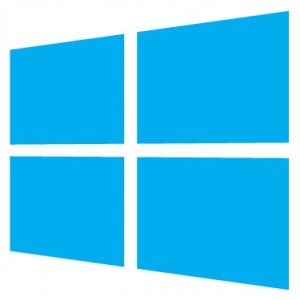Windows 8 Gets Off To Slow Start, New Stats Reveal

New statistics show Windows 8 is not proving to be quite as popular as Microsoft would have hoped
Web analytics company Net Applications has revealed in new statistics that only a small number of Internet devices are using the consumer preview of Windows 8.
The figures may cause some concern to Microsoft, which launched the Windows 8 Consumer Preview version on 29 February, intending that ordinary members of the public would try out Redmond’s forthcoming operating system.
Lack Of Interest?
Despite Windows 8 being available for over a month now, the Net Applications data reveals that for March 2012, Windows 8 was used by just 0.12 percent of PC owners worldwide. This was slightly ahead of the ancient Windows NT (0.11 percent), but behind Windows 2000 (0.15 percent).
 The deeply unpopular Windows Vista is still used by 7.92 percent, but its successor Windows 7 has proved to be much more popular at 41.81 percent. However, the daddy when it comes to popular Windows operating systems still remains the venerable Windows XP at 49.82 percent.
The deeply unpopular Windows Vista is still used by 7.92 percent, but its successor Windows 7 has proved to be much more popular at 41.81 percent. However, the daddy when it comes to popular Windows operating systems still remains the venerable Windows XP at 49.82 percent.
The fact that only 0.12 percent of Internet users are using Windows 8 indicates a lack of anticapitation about the new operating system. According to Slashgear for example, when those figures are compared with the same numbers during Windows 7′s beta period in 2009, they’re at about the 40 percent mark.
PC World meanwhile reported that by comparison, at this stage of the Windows 7 Preview, 0.26 percent of machines on the Web were running Windows 7. That means that more than double the number of people were trying out Windows 7, than are currently experimenting with Windows 8.
Possible Reasons?
So what are the possible reasons for this supposed lack of interest in Windows 8?
Well it could be that organisations and consumers are now happy with Windows 7 and are not inclined to switch. After all, many organisations waited for many years to ditch Windows XP before undertaking their PC refresh and acquiring fleets of machines equipped with Windows 7.
Also, there is no repeat of the stampede away from the disliked Windows Vista, as Windows 7 is proving to be relatively stable and popular.
But there could also be other reasons.
There is some speculation that the Metro interface of Windows 8 is not proving to be universally popular. Also, Microsoft is not issuing the same advice to enterprises with Windows 8: it told organisations still running XP to skip Vista entirely when Windows 7 was close to being released. There may also be confusion as to whether Windows 8 is more geared towards ARM-based tablet devices (Windows RT) than traditional PC machines.
Or it could be that sales of tablet devices and Apple Macs, as well as open source alternatives, are starting to impact the figures.
Whatever the truth in the matter, it remains to be seen how Windows 8 will be received as it nears its commercial launch.
How well do you know your operating systems? Take our quiz.